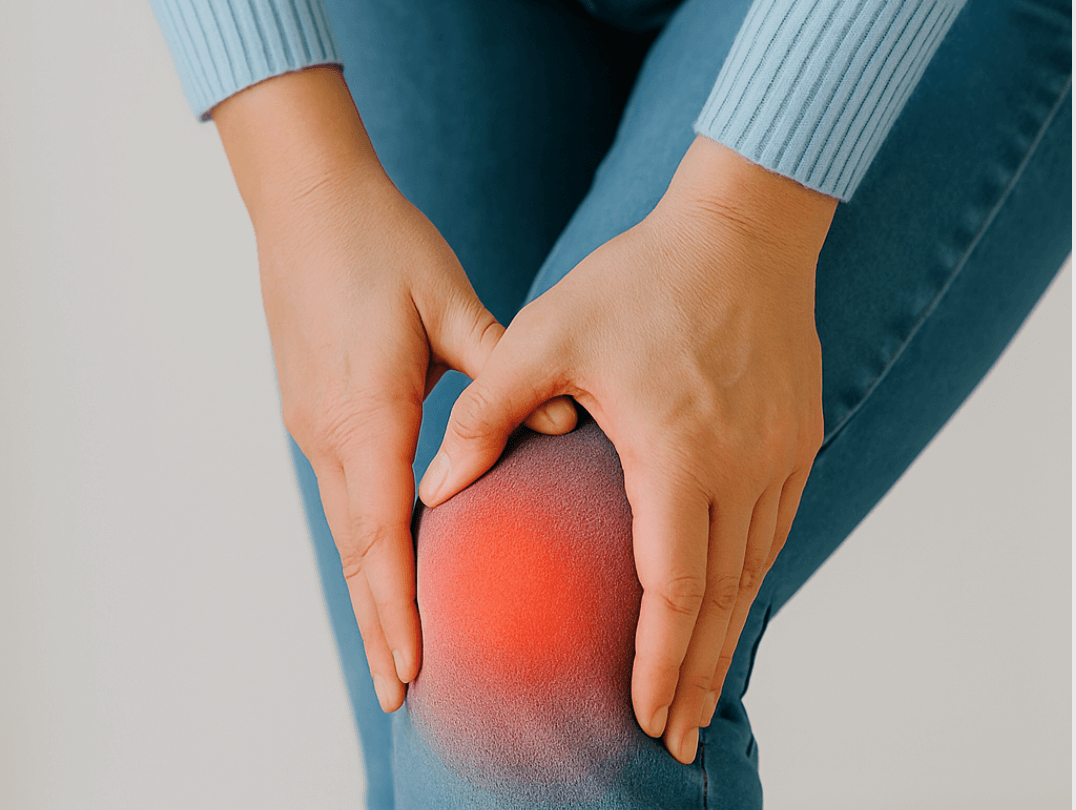
- Aug 27, 2025
- By TJICLondon
Supplements for Joint Pain: Do They Really Work?
Joint pain is one of the most common complaints among adults, especially as we age or develop arthritis. It can affect the knees, hips, shoulders, and hands, limiting mobility and making everyday tasks more difficult. Understandably, many people turn to joint pain supplements in search of relief. But do these capsules and powders really help, or are they just clever marketing?
In this article, we’ll explore the most popular supplements for arthritis and knee pain, review what the research says, and explain how they fit into a wider treatment plan that includes medical therapies, exercise, and diet.
Popular Joint Supplements Overview
Walk into any pharmacy or health food shop, and you’ll see shelves lined with products promising natural arthritis relief. The most common include:
Glucosamine
One of the most widely marketed supplements for joint pain, glucosamine for arthritis is often taken in combination with chondroitin. It’s a compound found naturally in cartilage — the tissue that cushions joints. The theory is that supplementing glucosamine helps slow cartilage breakdown and reduces arthritis symptoms.
Chondroitin
Often paired with glucosamine, chondroitin sulfate is another component of cartilage. Some studies suggest it may reduce pain and improve joint function, while others find little difference compared to placebo.
Turmeric (Curcumin)
Turmeric is a spice containing curcumin, known for its anti-inflammatory properties. Many people take turmeric capsules or powders as an alternative joint remedy. Small studies have shown it can modestly reduce arthritis pain and stiffness.
Collagen
Collagen peptides have become increasingly popular as supplements for knee pain and joint health. Collagen is a key protein in cartilage and connective tissues. Some early studies suggest hydrolysed collagen may reduce pain in people with osteoarthritis.
Omega-3 Fatty Acids
Fish oil supplements rich in omega-3s are often recommended for their anti-inflammatory benefits. They are better studied in rheumatoid arthritis (an autoimmune condition) than in osteoarthritis, but some users report reduced stiffness and pain.
Other Supplements
-
MSM (Methylsulfonylmethane): marketed for reducing pain and inflammation.
-
Boswellia (Indian frankincense): a plant extract with anti-inflammatory properties.
-
Vitamin D: may help joint and bone health, particularly if you’re deficient.
What the Research Says
So, do these supplements really work? The evidence is mixed.
-
Glucosamine and chondroitin: Large clinical trials have shown conflicting results. Some suggest modest pain relief in knee osteoarthritis, while others find no significant benefit compared to placebo. Interestingly, certain subgroups (such as those with more severe pain) may experience more noticeable improvement.
-
Turmeric: Several small, high-quality trials indicate that turmeric can reduce arthritis pain similarly to low-dose NSAIDs (like ibuprofen) — but the effects are usually mild. The catch? You need concentrated extracts, not just the spice from your kitchen.
-
Collagen: Early studies suggest hydrolysed collagen may improve pain and function, but research is still developing. Benefits tend to be modest.
-
Omega-3 fatty acids: Good evidence supports their use in rheumatoid arthritis (reducing morning stiffness and improving mobility), but the effect in osteoarthritis is less clear.
-
Other herbal or alternative remedies: MSM and boswellia show promise, but studies are often small and inconsistent.
Overall, research suggests that while some joint pain supplements may provide mild to moderate relief, none are miracle cures. They may work best as part of a combined approach rather than as a stand-alone solution.
Supplements vs Medical Treatments
It’s important to understand how supplements compare to standard medical treatments.
-
Supplements: May offer gradual, mild improvement. They’re often safe when used correctly but are not regulated as strictly as medicines.
-
Medications: Over-the-counter painkillers (like paracetamol or ibuprofen) can provide stronger relief. Doctors may also prescribe anti-inflammatories or stronger pain control for arthritis.
-
Injections: For more persistent or severe arthritis, treatments like cortisone injections, hyaluronic acid injections, or even advanced options like Arthrosamid® can provide longer-lasting relief. Injections are especially helpful for supplements for knee pain that don’t provide enough benefit.
While natural arthritis relief is appealing, supplements rarely match the effectiveness of medical therapies for moderate to severe arthritis. That said, they can be useful as part of a broader strategy, particularly if you want to avoid or reduce reliance on medications.
Safe Use and Considerations
Before starting any new supplement, it’s important to keep a few things in mind:
-
Consult a doctor first: Some supplements can interact with medications (for example, turmeric and fish oil may increase bleeding risk if you’re on blood thinners).
-
Choose quality products: Look for brands that are independently tested for purity. Supplements are not as tightly regulated as medicines, so quality can vary.
-
Set realistic expectations: Supplements may reduce pain slightly, but they won’t reverse arthritis or replace medical care.
-
Monitor side effects: Even “natural” remedies can cause issues like digestive upset, allergic reactions, or interactions with other treatments.
Comprehensive Care for Arthritis
Supplements can play a role in managing arthritis, but they work best when combined with other proven strategies:
-
Diet: Eating a balanced diet rich in fruits, vegetables, whole grains, and omega-3 fatty acids helps support joint and overall health.
-
Exercise: Low-impact activities like swimming, cycling, or yoga keep joints flexible and strengthen the muscles that support them.
-
Weight management: Maintaining a healthy weight reduces stress on the knees and hips, easing pain.
-
Physiotherapy: Targeted exercises can improve mobility and function.
-
Medical treatments: If supplements and lifestyle changes aren’t enough, injections or other therapies may be the next step.
Final Thoughts
Supplements for joint pain can be helpful for some people, but they’re not a cure-all. Products like glucosamine, chondroitin, turmeric, and collagen may offer mild relief and support overall joint health, but results vary widely.
For many, the best approach is a comprehensive plan: a healthy lifestyle, appropriate supplements, and medical treatments when needed. If you’re considering alternative joint remedies, speak with your doctor to make sure they’re safe for you and to discuss other options if pain continues to interfere with your life.
If you’ve tried supplements and are still struggling with persistent arthritis or knee pain, it may be time to explore medical options like joint injections. With expert guidance, you can find the right balance of treatments for lasting relief.









